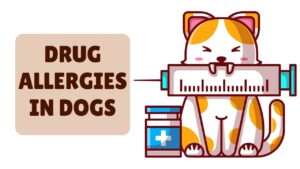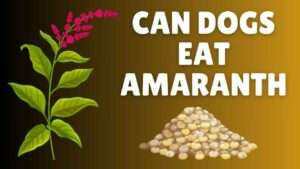Grapes – a delightful snack for humans, but can they share the joy with our canine companions?
The safety of grapes for dogs is a topic surrounded by controversy and concern.
Let’s delve deeper into the potential risks associated with feeding grapes to your furry friend.
Contents Overview
What are Grapes
Grapes are small, juicy fruits that grow on vines and come in various colors like green, red, and purple.
They are packed with vitamins, minerals, and antioxidants, making them a nutritious snack.
Grapes are used to make wine, juices, jams, and even raisins. Their sweet and tart flavors make them a popular choice for both snacking and cooking.
Is it Safe for Dogs to Consume Grapes?
No, dogs should not eat grapes.
Grapes and raisins have been associated with severe health complications in dogs, including kidney failure. Even small amounts can be toxic, and the exact cause of the reaction remains unknown.
To keep your furry friend safe, it’s best to avoid feeding them grapes or any products containing grapes altogether.
If accidental ingestion occurs, seek immediate veterinary attention to prevent potential harm to your dog’s kidneys.
Potential Risks of Feeding Grapes to Dogs
Feeding grapes to dogs can pose serious health risks due to a toxic substance that affects their kidneys.
Here are some potential risks and precautions to consider:
Toxicity
Grapes and raisins can cause kidney failure in dogs, even in small amounts. The exact compound responsible for this toxicity is unknown, making it unpredictable.
Symptoms
Dogs may exhibit symptoms such as vomiting, diarrhea, lethargy, loss of appetite, abdominal pain, weakness, and decreased urination within hours of ingesting grapes or raisins.
Treatment
If a dog consumes grapes or raisins, immediate veterinary attention is crucial. Treatment may involve inducing vomiting, administering activated charcoal to absorb toxins, intravenous fluids to support kidney function, and monitoring for potential complications.
Precautions
It’s essential to keep grapes, raisins, and any products containing them out of reach of dogs. This includes grape-flavored snacks, baked goods, and even some alcoholic beverages.
Alternatives
Instead of grapes, consider offering your dog-safe fruits and vegetables like apples, bananas, blueberries, carrots, or green beans as treats. Always research safe options before introducing new foods to your pet’s diet.
Vigilance
Be mindful of foods left within a dog’s reach, especially during gatherings or events where grapes or raisins may be present in dishes or desserts.
Consultation
Consult your veterinarian if you have any concerns about your dog’s diet or if you suspect they have ingested grapes or raisins. They can provide personalized advice and guidance based on your dog’s health status and dietary needs.
The Grape Debate: Understanding the Risks
Grapes and their dried counterpart, raisins, have been linked to serious health complications in dogs, including kidney failure.
Despite extensive research, the exact compound or toxin responsible for this adverse reaction remains unidentified.
However, the dangers associated with grapes are well-documented. Here’s what you need to know:
Toxicity
Grapes and raisins have been known to cause acute kidney injury in dogs, leading to symptoms such as vomiting, diarrhea, lethargy, and decreased urine production.
No Safe Amount
Unlike some foods where toxicity depends on the quantity consumed, even small amounts of grapes or raisins can be harmful to dogs. The reaction appears to vary among individual dogs, with some experiencing severe symptoms after ingesting just a few grapes.
Mystery Resolved
APCC vets cracked the mystery of grape toxicity in dogs, linking it to tartaric acid. Grapes, raisins, and sultanas can cause vomiting, diarrhea, excessive thirst, and kidney damage. Variations in tartaric acid levels explain the differing reactions.
Safe and Suitable Alternatives of Grapes for Dogs
Instead of grapes, there are several safe and suitable alternatives for dogs to enjoy as treats. Opt for fruits like apples (without seeds), bananas, blueberries, and strawberries, which are rich in nutrients and safe for canine consumption.
Additionally, vegetables such as carrots, green beans, and cucumber slices make crunchy and healthy snacks for dogs.
Always remember to remove any seeds, pits, or cores from fruits before offering them to your furry friend, and introduce new foods gradually to ensure they agree with your dog’s digestive system.
Bottom Line
In conclusion, the potential risks associated with grapes and raisins outweigh any potential benefits they may offer to dogs.
To safeguard your furry friend’s health and well-being, it’s best to steer clear of grapes and opt for safer snack options. Remember, when it comes to your dog’s diet, their safety always comes first.
So, can dogs eat grapes?
The answer is a resounding no. Protect your pup by keeping grapes out of reach and opting for safer alternatives. With a little vigilance and care, you can keep your canine companion happy, healthy, and free from harm.



































+ There are no comments
Add yours